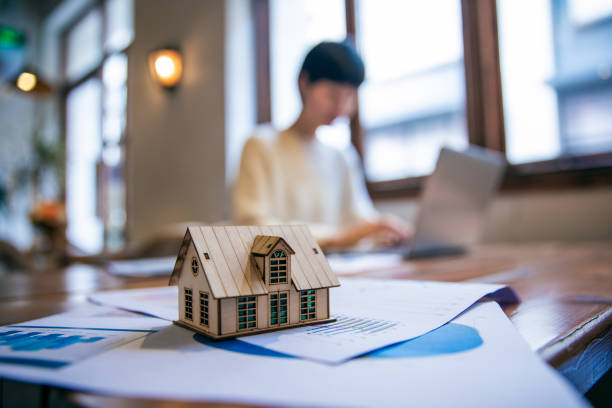How to Apply for a Building Use Permit (SLF) in Indonesia: A Complete Guide by The Bali Lawyer



In Indonesia, obtaining a Building Use Permit (Surat Laik Fungsi or SLF) is a critical step in ensuring that your property meets legal and safety standards. Whether you’re developing commercial spaces, residential projects, or industrial buildings, the SLF is essential to prove that the building is safe, compliant, and ready for use. For business owners, developers, and investors looking to establish their presence in Indonesia, especially in regions like Bali, understanding how to navigate the SLF application process is crucial for project success.
At The Bali Lawyer, we specialize in assisting clients with the entire SLF process, from documentation preparation to submission and approval. This comprehensive guide will walk you through the steps of obtaining a Building Use Permit, ensuring that your property meets all legal requirements in Indonesia.
What is a Building Use Permit (SLF) in Indonesia?
The Building Use Permit (SLF), also known as Surat Laik Fungsi, is a legal document that certifies a building’s compliance with Indonesian building regulations. The SLF verifies that a building is safe for occupation and use, based on a thorough inspection by the local authorities. Without this permit, buildings cannot legally be used or occupied, and owners may face fines or legal action if they proceed without it.
The SLF is crucial for both commercial and residential projects, as it guarantees that the construction has met the necessary safety standards, including structural integrity, fire safety, sanitation, and environmental impact.
Key Features of the Building Use Permit (SLF):
- Mandatory Requirement: Every new building in Indonesia must have an SLF before it can be legally occupied.
- Inspection-Based Approval: Local authorities will inspect the building to ensure it complies with safety and zoning regulations.
- Applies to All Property Types: Whether you are constructing a commercial, industrial, or residential property, the SLF is required for legal use.
- Renewal Process: The SLF is typically valid for five years and must be renewed to ensure ongoing compliance with safety regulations.
Why is the Building Use Permit (SLF) Important?
Obtaining an SLF is not only a legal requirement but also a safeguard for your investment. Without an SLF, your building may be subject to penalties, including fines, revocation of other permits, or even demolition orders. Furthermore, the SLF ensures that your property is safe and habitable for occupants, whether they are tenants, employees, or residents.
Key Reasons to Obtain an SLF:
- Legal Compliance: The SLF certifies that your building complies with local safety regulations, zoning laws, and building codes.
- Safety Assurance: It ensures that the building is structurally sound, has fire safety measures in place, and meets health and environmental standards.
- Business Continuity: For commercial properties, having an SLF is critical for obtaining operational permits, securing insurance, and attracting tenants or buyers.
- Investment Protection: With an SLF in place, you can avoid legal complications that could delay or halt your project.
Who Needs to Apply for a Building Use Permit (SLF) in Indonesia?
Anyone involved in building construction, whether for commercial, industrial, or residential use, must apply for a Building Use Permit (SLF). This includes developers, property owners, real estate investors, and businesses setting up facilities in Indonesia.
Types of Properties That Require an SLF:
- Commercial Buildings: Office spaces, retail outlets, hotels, and restaurants.
- Residential Properties: Villas, apartment complexes, and housing developments.
- Industrial Buildings: Factories, warehouses, and manufacturing plants.
- Public Buildings: Schools, hospitals, and other government facilities.
Regardless of the size or scope of your project, an SLF is necessary to ensure that the building is compliant and safe for use.
Key Requirements for Obtaining a Building Use Permit (SLF)
Applying for an SLF involves several steps, including the submission of key documents, inspections, and approval from local authorities. It’s important to understand the criteria for SLF approval to avoid delays or potential rejection of your application.
Key Documents and Requirements for SLF Application:
- IMB (Building Permit): You must have an IMB (Izin Mendirikan Bangunan), which is the initial construction permit, before applying for an SLF.
- Building Plans and Design: The building’s design must meet safety standards, and you’ll need to submit blueprints, architectural plans, and construction specifications.
- Inspection Reports: The local authorities will conduct inspections to assess the structural integrity, fire safety measures, sanitation systems, and environmental impact of the building.
- Zoning Compliance: The building must comply with local zoning regulations, including land use and environmental codes.
- Utility Connections: Proof of connection to essential utilities, such as electricity, water, and waste disposal, is required.
- Environmental Impact Assessment (AMDAL): For larger commercial or industrial buildings, an AMDAL report may be necessary to assess the environmental impact of the project.
Step-by-Step Process for Applying for a Building Use Permit (SLF) in Indonesia
The process for applying for a Building Use Permit (SLF) can be complex, involving multiple stages of documentation, inspections, and coordination with local authorities. Here’s a step-by-step guide to help you navigate the SLF application process:
Step 1: Obtain the IMB (Building Permit)
Before applying for an SLF, you must first secure an IMB. The IMB is the construction permit that allows you to start building on the property. Without an IMB, you cannot proceed with the SLF application.
Step 2: Complete Construction and Prepare Documents
Once the construction is completed, gather all necessary documents, including the building’s blueprints, IMB, utility connections, and any relevant inspection reports. Ensure that the building’s design complies with local regulations.
Step 3: Submit SLF Application
Submit the SLF application to the local government office responsible for building permits. This submission should include all required documentation, such as building plans, proof of utility connections, and zoning compliance.
Step 4: Schedule an Inspection
After submitting the application, the local authorities will schedule an inspection to evaluate the safety and compliance of the building. This includes checking the structural integrity, fire safety systems, sanitation facilities, and environmental impact.
Step 5: Address Any Issues or Compliance Gaps
If the inspection reveals any issues or non-compliance with local regulations, you may be required to make modifications or provide additional documentation. Work closely with your contractor and local authorities to resolve any compliance gaps.
Step 6: Approval and Issuance of SLF
Once the building passes all inspections and meets the necessary requirements, the SLF will be approved and issued by the local authorities. You will receive the official SLF document, certifying that the building is safe for use.
Step 7: Renewal of SLF
The SLF is typically valid for five years. Before it expires, you’ll need to apply for a renewal to ensure that the building continues to meet safety standards and legal requirements.
Common Challenges and How to Overcome Them
Applying for a Building Use Permit (SLF) can be a challenging process, especially if you’re unfamiliar with Indonesian building regulations or local bureaucratic procedures. Here are some common challenges and how The Bali Lawyer can help you overcome them:
1. Incomplete Documentation
Missing or incorrect documentation is one of the most common reasons for delays in SLF approval. We help ensure that all required documents are in order before submission, reducing the chances of rejection.
2. Zoning and Land Use Issues
Certain buildings may not comply with local zoning laws or land use regulations, leading to complications in the approval process. Our legal team assists in resolving zoning issues and ensuring compliance with local laws.
3. Inspection Delays
Delays in scheduling inspections or addressing compliance issues can stall the SLF approval process. We coordinate with local authorities to expedite inspections and manage any necessary corrections.
4. Language Barriers
For foreign investors or developers, navigating the Indonesian legal system can be challenging due to language barriers. At The Bali Lawyer, we provide bilingual legal services to ensure that all communications with local authorities are handled smoothly.
Why Choose The Bali Lawyer for Your SLF Application?
At The Bali Lawyer, we provide expert legal services to help you navigate the complex process of applying for a Building Use Permit (SLF) in Indonesia. With years of experience in Indonesian property law and a deep understanding of local regulations, we ensure that your building meets all legal requirements, allowing you to focus on your business.
Key Benefits of Working with The Bali Lawyer:
- Comprehensive Legal Assistance: From document preparation to inspections and approvals, we handle every step of the SLF application process.
- Local Expertise: Our team has extensive experience dealing with local authorities and ensuring compliance with Indonesian building regulations.
- Bilingual Services: We offer bilingual legal services, ensuring clear communication with both local authorities and international clients.
- Time-Saving Solutions: We work efficiently to minimize delays and ensure that your SLF is approved as quickly as possible.
Contact The Bali Lawyer to Apply for Your Building Use Permit (SLF)
If you’re ready to apply for your Building Use Permit (SLF) in Indonesia, The Bali Lawyer is here to assist you every step of the way. Our experienced legal team ensures that your property complies with all local building regulations, allowing you to proceed with confidence.
